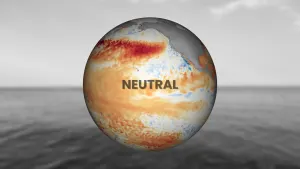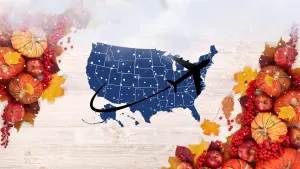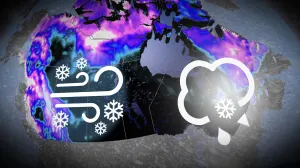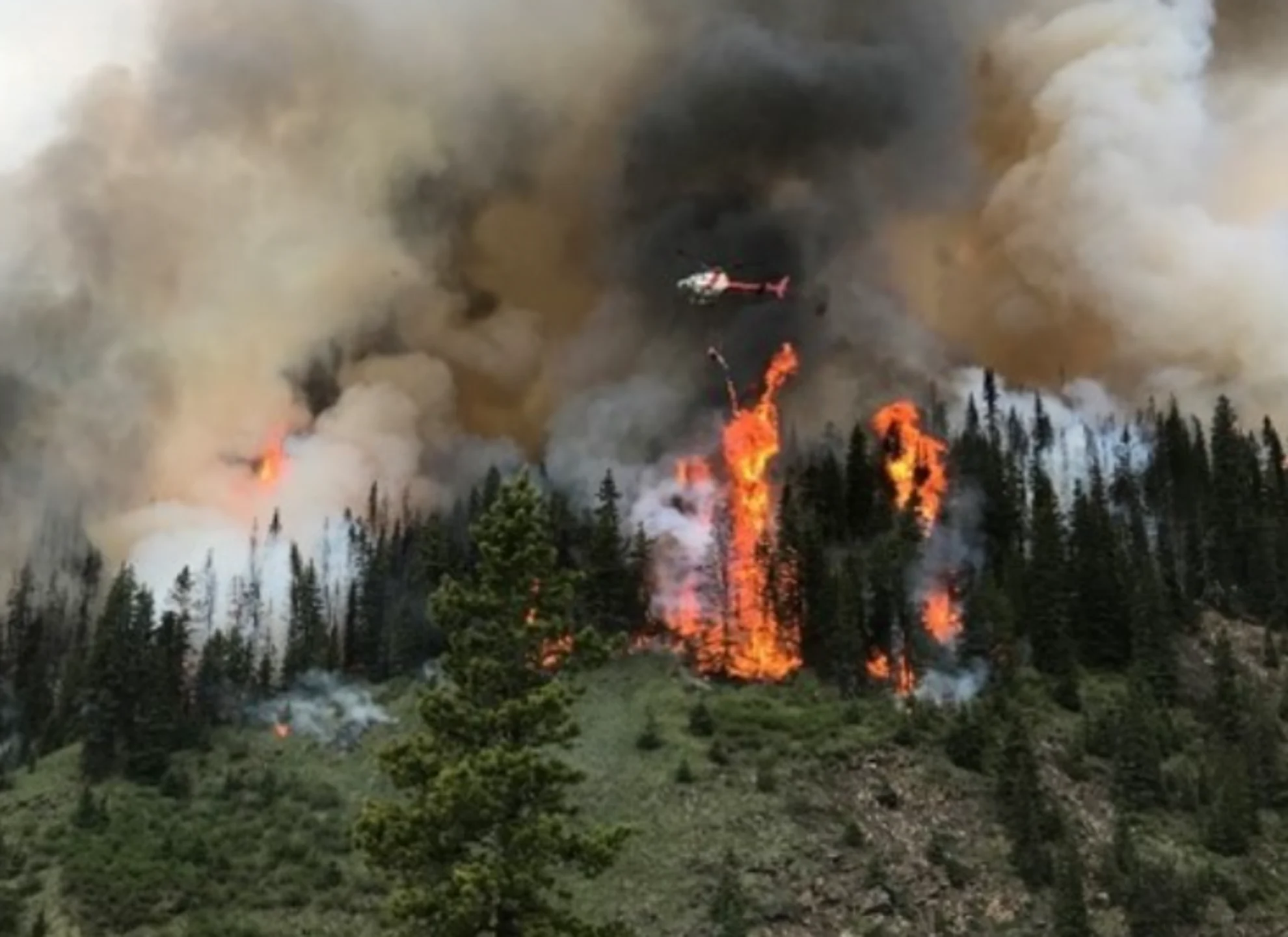
2023 is off to a dry start, and Alberta's fire danger rating is rising
Wildfire season runs from March 1 to Oct. 31 in Alberta every year, with a peak in activity typically happening in May. Albertans are being urged to be "fire-aware"
With a long wildfire season ahead, concerns are already mounting in Alberta, as precipitation is drastically below average in some areas this year.
The city of Edmonton has been desperately starved for moisture for the past five months, and although some rain has fallen, it was only a drop in the bucket for what is actually needed.
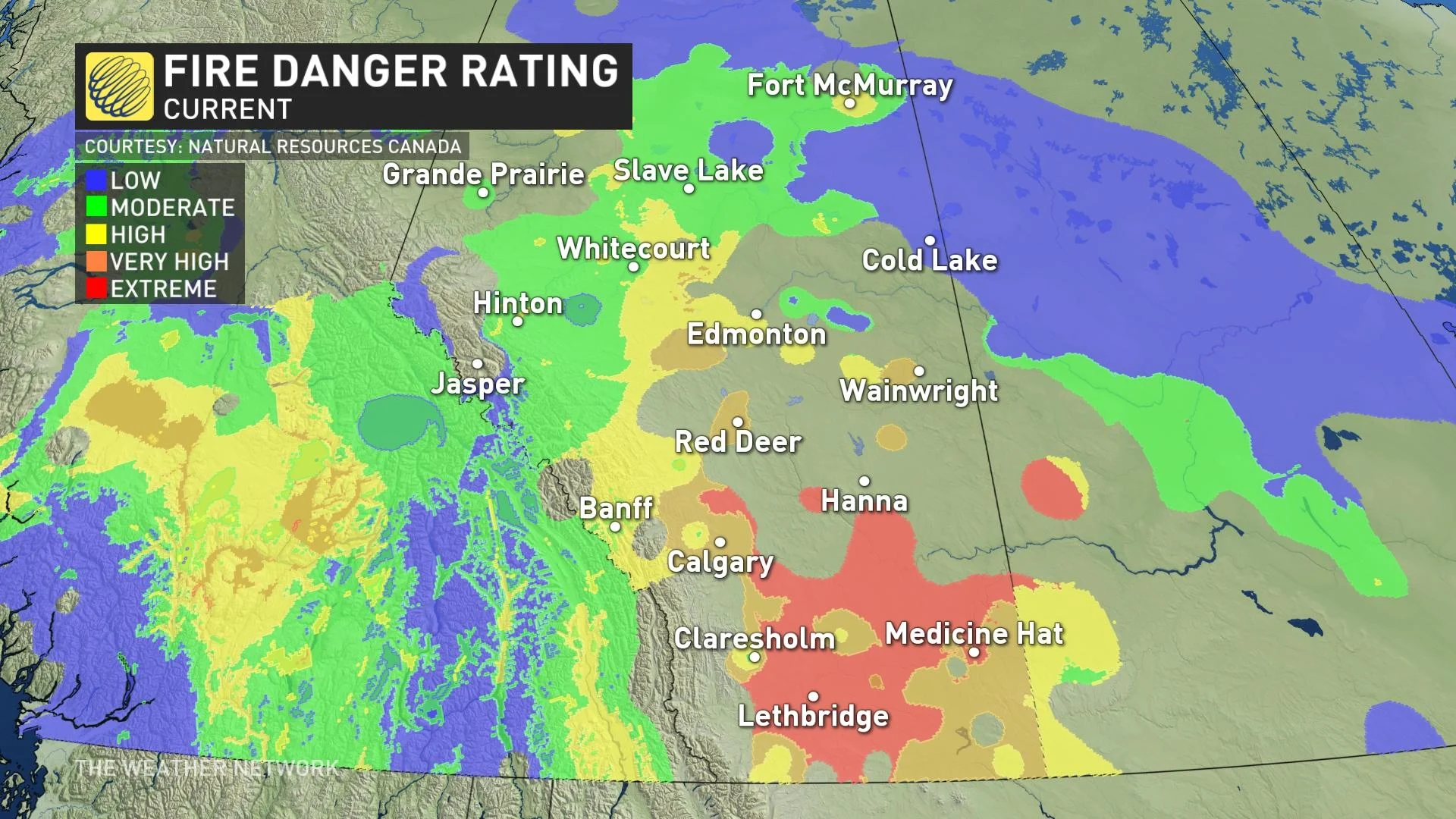
MUST SEE: Human activities are fuelling wildfires that burn carbon-sequestering peatlands
Calgary has seen near, or slightly above, average precipitation for the past few months, but there has been a dramatic drop in precipitation for April. This has raised concerns for dry conditions and a challenging season ahead, as well. In 2022, over 160 wildfires were reported in the Calgary forest area.
Already, there are dozens of active wildfires across northern Alberta, and atmospheric signals point to immediate worries across the south.
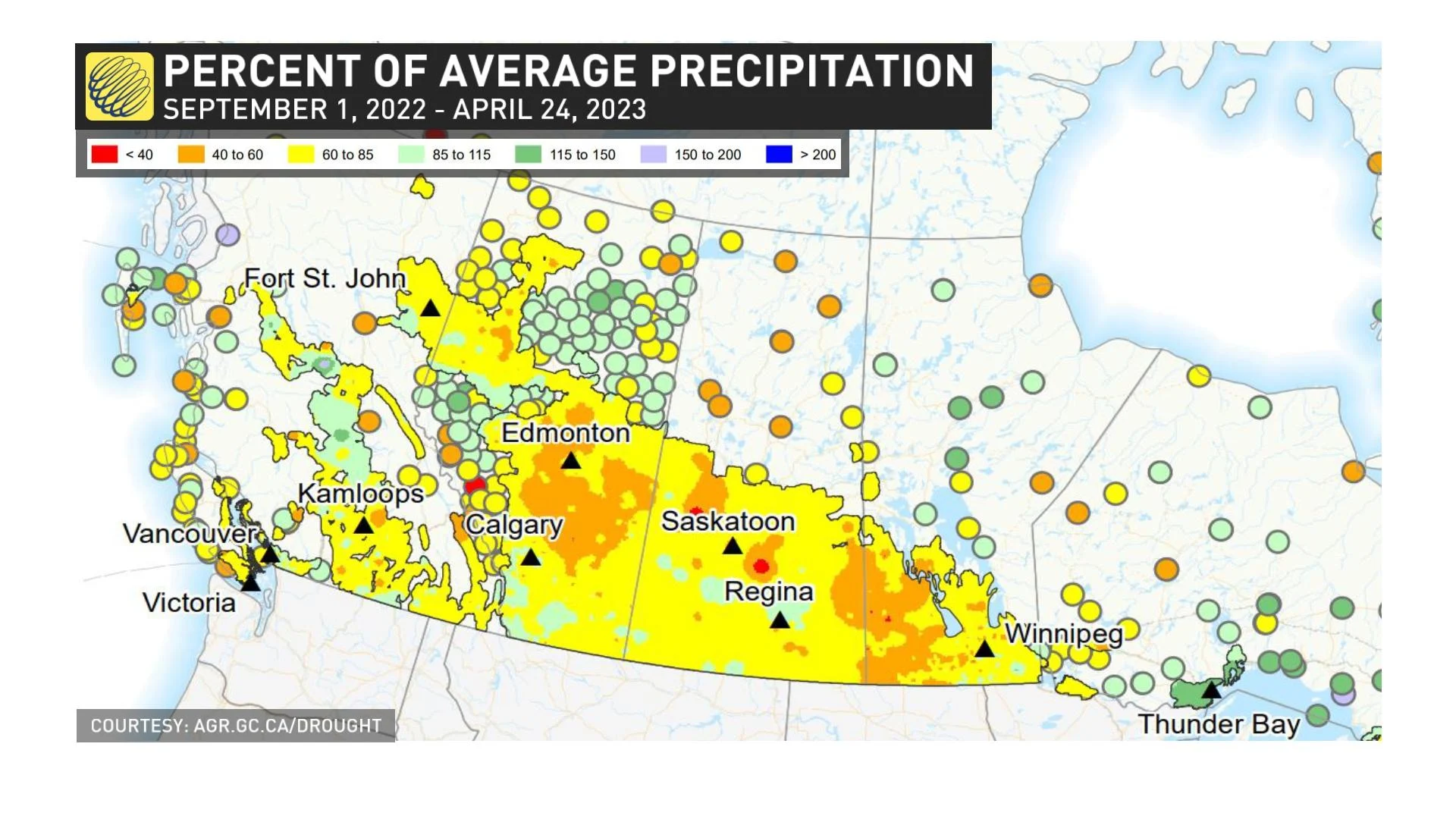
"A large chunk of the province has only received between 40 and 60 per cent of normal precipitation so far this year," says Nadine Powell, a meteorologist at The Weather Network. "The current fire danger rating is very "high" to "extreme" across parts of southern Alberta."
This situation will worsen with the building area of high pressure, rising temperatures, and very little precipitation to come in the weeks ahead. Warm weather will spread into the western Prairies late-week through early next week, with high temperatures ranging from the upper teens to mid-20s across most of Alberta, including Edmonton and Calgary.
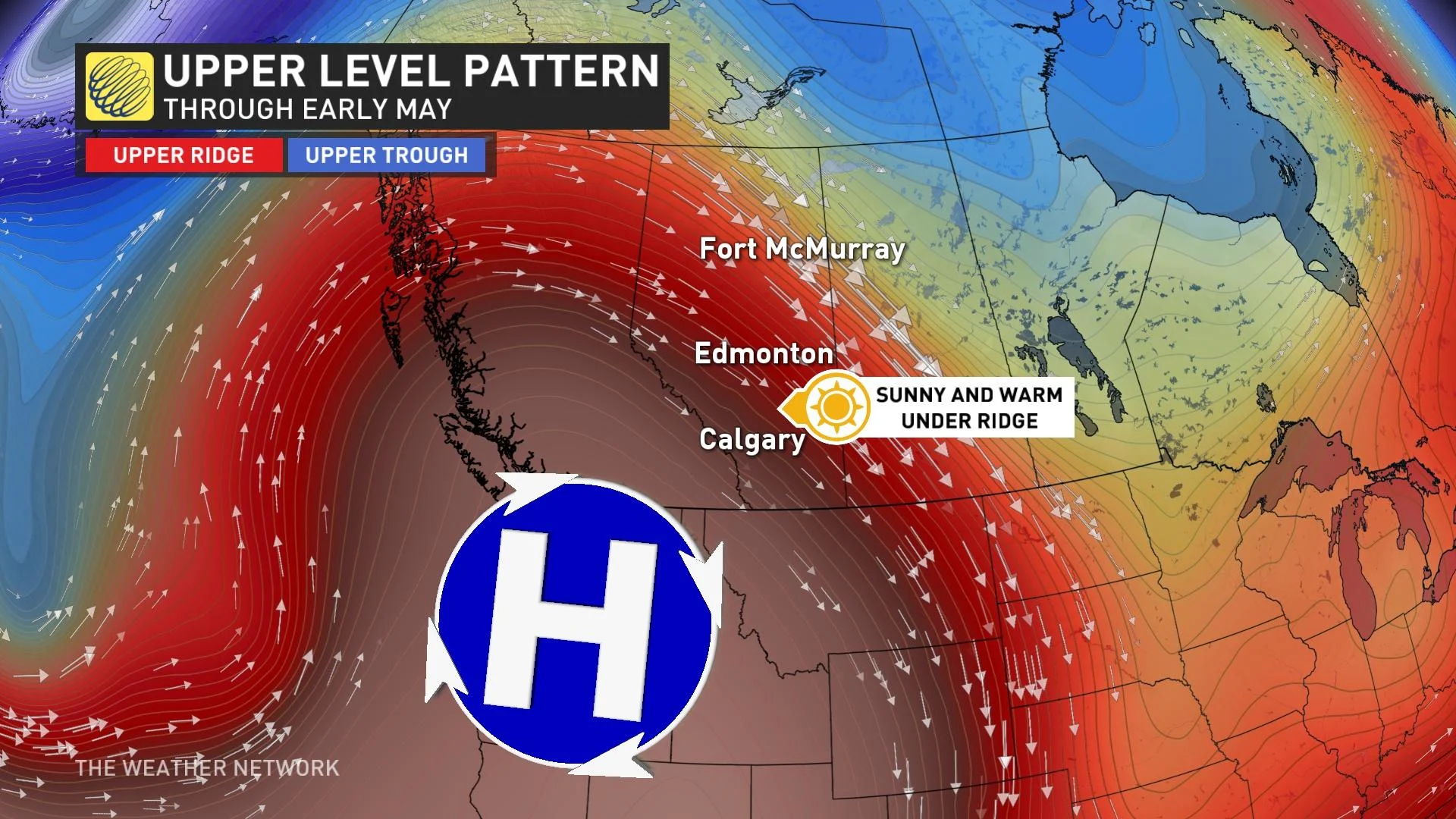
Fire crews have been responding to several grass and brush fires in recent weeks, with one Edmonton neighbourhood evacuated on Monday due to a grass fire creeping dangerously close to homes.
Last year, the province said 1,246 wildfires occurred, which burned over 130,000 hectares. More than 60 per cent of those wildfires were human-caused and could have been completely preventable.
RELATED: Out camping? Here's how to safely put out your campfire
"Wildfires can affect communities in forested or grassland areas, including urban green spaces like ravines and parks," Alberta Wildfire states on its website. "If a fire is near, protect yourself and loved ones by following directions from authorities and be prepared to evacuate."
Before a wildfire, individuals and families should be prepared to take care of themselves for at least 72 hours.
Thumbnail image courtesy: Alberta Wildfire/Twitter








